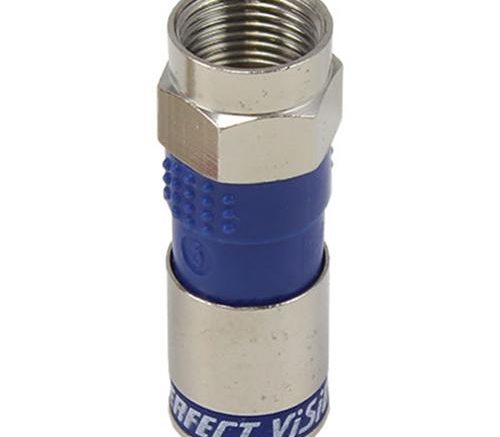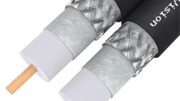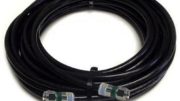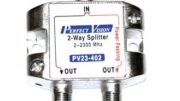Oh boy, I know I’m in for a battle here. There are folks who swear by the Perfect Vision Ridgeloc connector you see above. It’s AT&T-approved (one of the few connectors that is) and it works with a wide variety of compression tools. It’s also fairly reasonably priced.
Other folks swear by Belden, while there are others who will take any connector that’s put in front of them as long as it looks fairly sturdy. I’ll guarantee you this: ask three technicians for their opinions on cabling and you’ll get five answers.
But should a DIY’er really care which connector to use?
Most of the time the answer is no, as long as the connector you choose fits the specs that you need it to. There are several things to look for in a connector:
Does it fit the tool you have?
Almost all compression connectors will work with almost all tools but there are some exceptions. Some of the bulkier connectors don’t work with low-end tools like the Perfect Vision PV-100. Belden’s Snap-N-Seal connectors really work best with their tools, but their tools also work with other connectors. By and large you’ll find most connectors do work well with most tools though.
Will it work with your cable?
A connector designed for quad shield cable may not fit regular dual-shield cable, and a connector designed for RG59 (which is sometimes thinner than RG6) may not fir more industrial-quality cables. There are also special connectors designed for super-thin cables and these won’t work at all with regular cables. Read the specs carefully to make sure you’re buying a connector that will work well with what you want to use for cable. If your local building codes require plenum-rated cable, you’ll need a special connector for that as well.
Is it even the right kind of connector?
Solid Signal does sell crimp-on connectors because they can be used for antenna installations. You shouldn’t use them for most satellite installations, because unless you make them perfectly they’re going to cause signal problems. It’s much easier to make good-quality compression fittings that hold up to the weather and that pass all the signal that needs to pass through them. Hex-crimp connectors are less expensive though, so if you’re doing a lot of antenna installations you may decide to go that way. Do be aware that you’ll need a tool that can do hex crimps rather than the much more common compression tool.
It’s really up to you
I know there are people who swear by one brand or another. I’m not really one of them, but I will say this — if you find a connector that you like, one that works with the tool you have and that meets your needs — you should absolutely stay with that brand. Why mess with success?
No matter what connectors you decide to get, and no matter what use you have for them, you’ll find everything you need at Solid Signal. Whether you’re a DIY’er or a seasoned pro, you’ll find a great selection!





